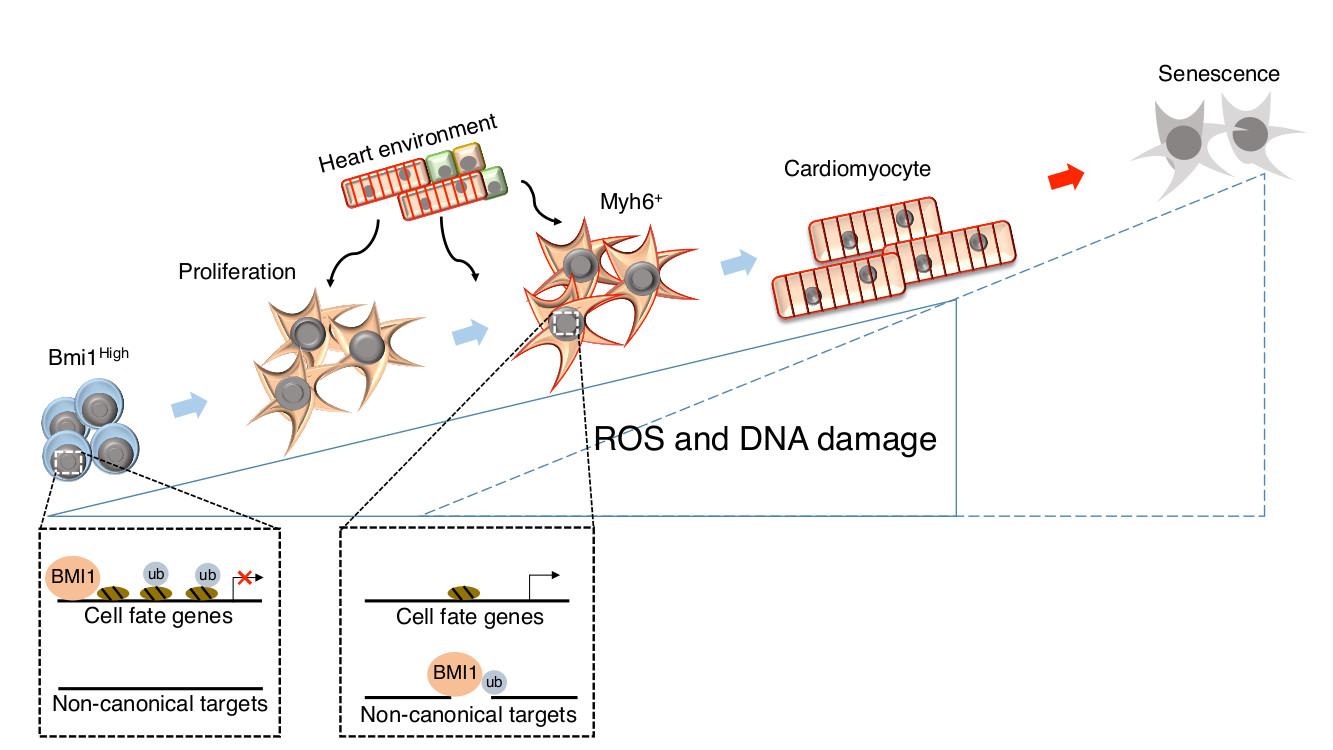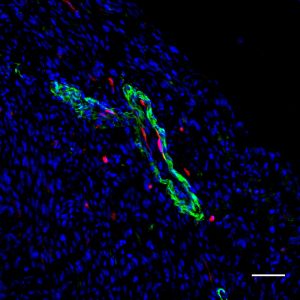The accumulation in the heart of small molecules with oxidation capacity –reactive oxygen species– causes a process termed oxidative stress that leads to changes in the function of proteins associated with cardiac stem cell behaviour.
Scientists at the Centro Nacional de Biotecnología of the CSIC (CNB-CSIC) have shown that after damage to cardiac tissue due to reactive oxygen species, adult heart stem cells differentiate. This process could have implications for the regenerative capacity of the adult heart. The study was published in the journal Cell Death & Differentiation.
The scientists studied the BMI1 protein and found that, in normal conditions, it has an important role in the maintenance of heart stem cells. When faced with oxidative damage, however, BMI1 function changes and it begins to promote differentiation of these cells.
"This type of damage is associated with serious cardiovascular diseases," explains Antonio Bernad, director of the study and CNB-CSIC researcher. “Understanding the factors that determine stem cell fate can help us explore new possibilities for cardiac regeneration."
During embryonic development, oxygen levels in the heart are low, conditions in which immature cardiomyocytes multiply. With birth and exposure to environmental oxygen, oxidation levels increase and cardiomyocytes differentiate and stop dividing. Despite these clues, how oxidative stress influences cell renewal in the adult heart has not been studied to date. "Our data indicate that oxidative stress is central to activating progenitor cell differentiation. The BMI1 protein is one of the key regulators of this process," the authors conclude.
- Herrero D, Tomé M, Cañón S, Cruz FM, Carmona RM, Fuster E, Roche E, Bernad A. Redox-dependent BMI1 activity drives in vivo adult cardiac progenitor cell differentiation. Cell Death Differ. 2018 Jan 11. doi: 10.1038/s41418-017-0022-2.

Esquema resumen del estudio. / Antonio Bernad, CNB-CSIC






